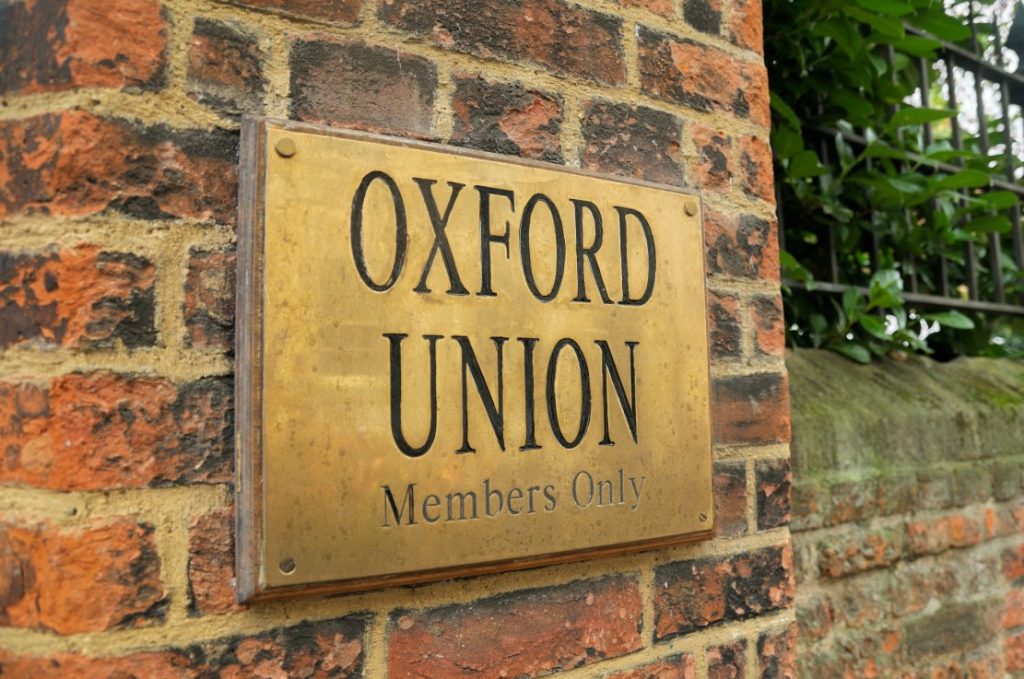When tech investor Josh Wolfe, co-founder of Lux Capital, accepted an invitation to speak at the Oxford Union on venture capitalism, he likely expected a prestigious debate on innovation and funding. Instead, he withdrew at the last minute after discovering that the Union’s incoming president, George Abaraonye, allegedly celebrated the fatal shooting of US conservative activist Charlie Kirk. Wolfe cited the need for “cultural leadership” that denounces violence, making his cancellation a pointed rebuke of Abaraonye’s remarks.
The controversial chat message
An anonymously leaked screenshot from a student chat group showed Abaraonye typing “let’s f**king go” in response to news that Charlie Kirk had been shot during a public debate at Utah Valley University. The comment sparked immediate outrage on social media and drew condemnation from political figures on both sides of the Atlantic.
— Liz Truss, former UK Prime Minister, called for Abaraonye’s expulsion from Oxford University.
— Other senior politicians and alumni demanded the debating society issue an apology and review its vetting procedures for student leaders.
Josh Wolfe’s principled stand
In a post on X (formerly Twitter), Wolfe explained his decision to pull out:
- He had been invited to discuss “tech and venture capitals” at the Union’s famed debating chamber.
- He emphasized that an institution with such a long history must “celebrate peace, coexistence and civil discourse.”
- Without a clear denunciation of violence from leadership, he could not in good conscience appear under the Union’s banner.
By explicitly linking his withdrawal to Abaraonye’s comments, Wolfe drew a bright line between the Union’s storied tradition and its responsibility to uphold respectful debate.
Oxford Union under scrutiny
The Oxford Union has long been a springboard for political heavyweights, from William Hague to Boris Johnson, but its history includes repeated controversies:
- In 2019, a blind student was forcibly removed from the chamber, triggering a legal settlement.
- Speakers like Donald Trump and Nick Griffin have caused divisions over free speech versus platforming extremist views.
- Internal elections have occasionally been marred by accusations of bullying or racism among candidates.
Abaraonye’s alleged celebration of a violent act assaults the Union’s founding principle of “controversial debate within a charitable spirit.” For many observers, this incident reflects deeper challenges in student politics nationwide.
Charlie Kirk and the debate that turned deadly
Charlie Kirk, founder of the conservative group Turning Point USA, was assassinated on September 10 during a campus event at Utah Valley University. A 22-year-old suspect, also a student, was arrested shortly afterward. Kirk’s platform centered on free speech advocacy and debating liberal views on university campuses. His prior appearance at the Oxford Union earlier this year added irony to Abaraonye’s reaction.
The shooting reignited discussions around campus safety, political violence, and the polarizing role of influencers in higher education. Abaraonye’s alleged response—celebrating the death of someone exercising free speech—struck many as a betrayal of the very ideals the Union claims to defend.
Repercussions for the Union’s event schedule
Wolfe’s withdrawal leaves a vacancy in the upcoming session on “The Future of Global Tech Investment.” According to insiders:
- The Union scrambled to find a replacement speaker at short notice.
- The student committee debated whether to censor the incoming president’s remarks or remove him from office entirely.
- Several alumni threatened to withhold donations until the Union issued a formal apology and took disciplinary action.
These developments threaten to overshadow the Union’s Autumn term programming and put its financial stability at risk.
What happens next?
George Abaraonye has yet to publicly clarify his intent behind the chat message. Potential outcomes include:
- An official apology from Abaraonye, coupled with disciplinary measures from University authorities.
- A vote of no confidence by Union members, possibly leading to his removal as president.
- Ongoing scrutiny from the university’s administration, which could override the Union’s autonomy in extreme cases.
For now, the Oxford Union faces difficult questions about its governance and the standards expected of its student leaders. As one editorial in the student newspaper noted, “Platforms for debate thrive on respect—even for those we vehemently oppose.”
